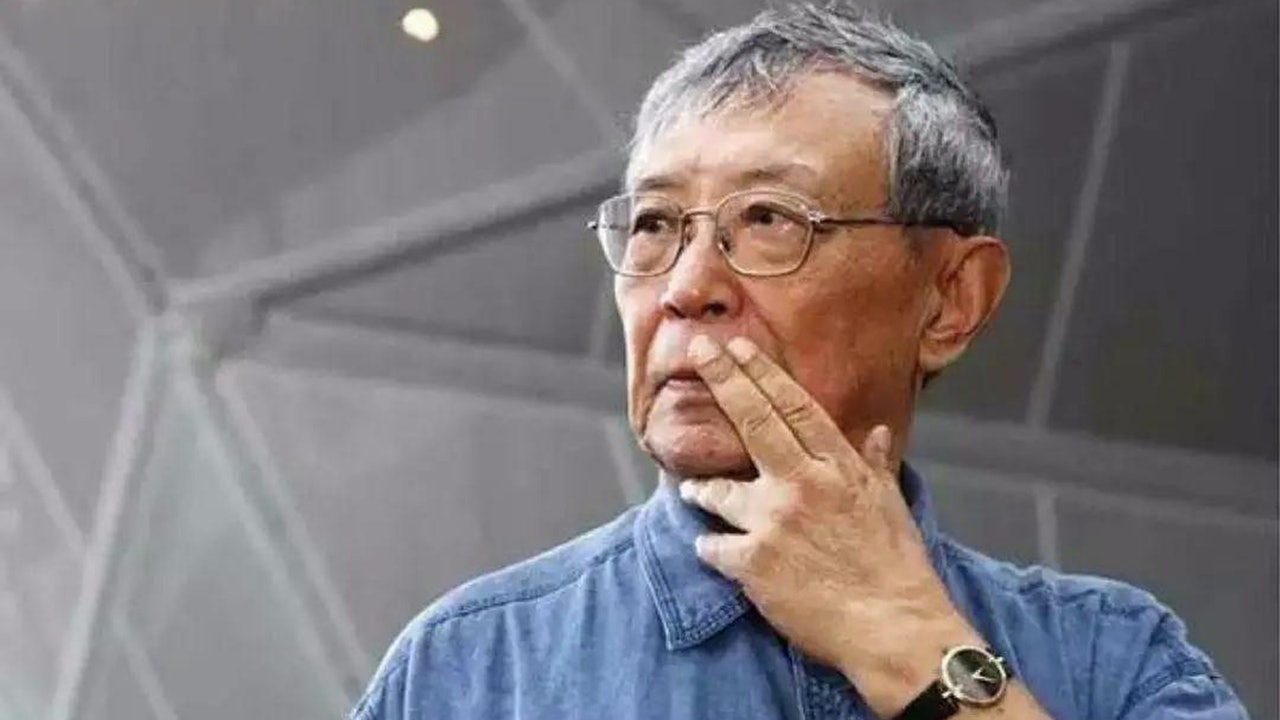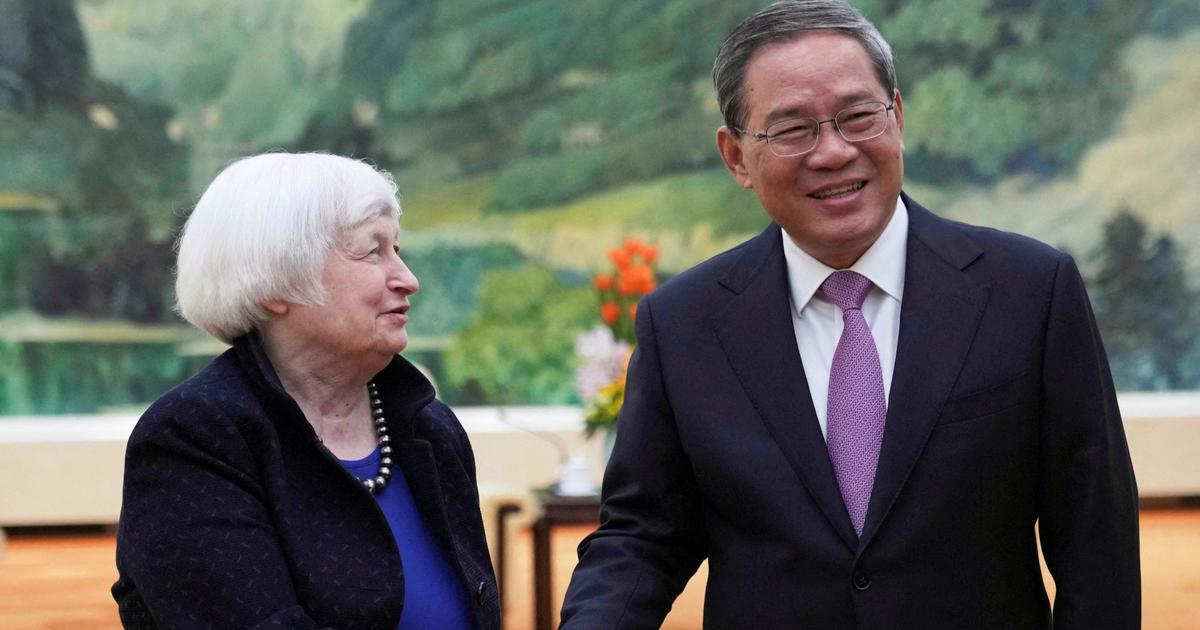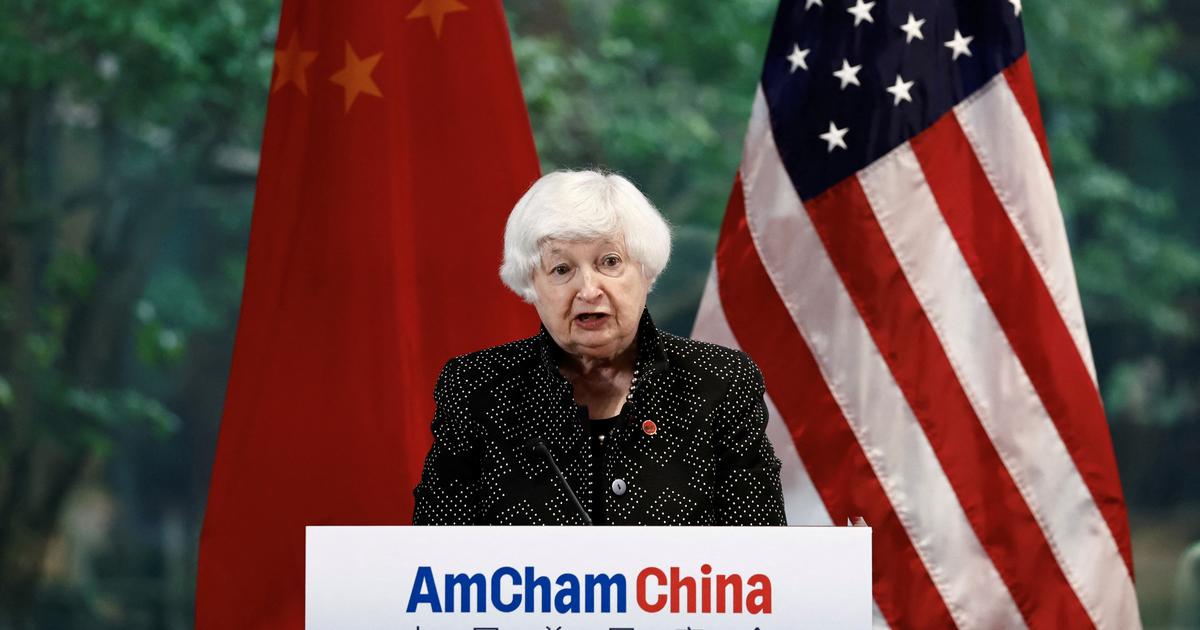The news of the Chinese philosopher Li Zehou’s death early (November 2) caused a lot of shock in the intellectual, intellectual, and cultural circles of Chinese people at home and abroad. Many people lamented the end of an era and cherished and commemorated the 1980s.
Many people in China may not know Li Zehou, but in the 1980s, Li Zehou was definitely a spiritual mentor and iconic figure in the intellectual, intellectual, and cultural circles. At that time, almost no one knew Li Zehou among college students, graduate students and young intellectuals.
Many articles have described that in the 1980s, Li Zehou's work on Luoyang Zhigui inspired a whole generation of people. He went to Peking University for a discussion. When dining in the cafeteria, the three floors and three floors were surrounded by students who were eager for knowledge.
Chinese scholar Yi Zhongtian, who used to frustrate Li Zehou’s articles in his early years when he was studying at Wuhan University, recalled, “In the spring and blooming season of the early 1980s,” Li Zehou “swept China and turned all living things upside down.” “Every time a new work is published, my friend We have to run around and tell each other, we even especially like his "small articles"."
Chen Lai, the dean of the Institute of Chinese Studies at Tsinghua University and a professor of philosophy, wrote in "A Comment on Li Zehou": "Mr. Li Zehou is one of the most original thinkers in mainland China since 1949. His academic thoughts have spread widely to the humanities. In many fields of social sciences, many of his thoughts and judgments are still familiar and talked about by everyone. This shows the charm of his thoughts. What is more commendable is that Mr. Li is a philosopher who takes thought as his life."
Needless to say, as a recognized important philosopher, aesthetician, and thinker, Li Zehou's historical status has long been established, and his ideas and propositions will persist in the long river of history and be left to the world's comment.
Today I try to comment on Li Zehou's well-known and controversial proposition during his lifetime-"Western style is used in China."
Controversy continued after the "Western style Chinese use" was proposed. Many intellectuals, including Yi Zhongtian, have raised questions. However, Li Zehou has always insisted on his own opinions. Whether in interviews or in his follow-up works, he has repeatedly said " "Western style is used in China" defense.
Li Zehou has stated on many occasions that his "Western System for Chinese Use" was originally proposed for "Chinese System for Western Application" and "Total Westernization" (that is, "Western System for Western Application"). "Whole Westernization" is still in use and popular, so why can't he use "Westernization in Chinese"?
Li Zehou's self-justification is reasonable, but it still lacks persuasiveness.
One is because although "Chinese and Westernization" and "Total Westernization" are still in use, they have long been lacking in the market, full of ambiguity, and ambiguous in meaning. Today, I should take warning, why repeat the fallacies of the predecessors? Didn't it completely break out of the past cognitive misunderstandings and rebuild a set of discourse system?
The second reason is that although Li Zehou's interpretation of "Western style is used in China" is indeed insightful, it is still vague, not completely accurate, and easy to be misunderstood.
As we all know, "Chinese learning and Western learning" was a famous proposition of Zhang Zhidong, a politician and representative of the Westernization School in the late Qing Dynasty. Western natural sciences and technology are supplements, methods or tools.
The Sino-Japanese War of Jiawu, the Revolution of 1911, the New Culture Movement, and the May Fourth Movement have long proved Zhang Zhidong's propositions to be wrong, even if Zhang Zhidong's attitude towards Chinese traditions is remarkable.
As for the "total Westernization" proposition, naturally it cannot withstand scrutiny. It neither sees the deep-seated problems of Western society and the applicability of Western culture, nor the vitality and value of Chinese culture and the significance of human cultural diversity.
Like Chen Xujing, who was famous for advocating "Total Westernization" during the Republic of China, no matter how much he advocated Westernization, his own behavior and living habits were still typical Chinese people throughout his life.
Li Zehou disagreed with "Chinese and Western styles" and "full Westernization", so he proposed "Western styles and Chinese styles," but he gave new connotations of "Western styles" and "Chinese styles."
Many people who haven't read Li Zehou's works seriously, when they see Li Zehou's "Western style use in China," they may think that Li Zehou is a big rightist or a liberal who is based on the West, but it's not that simple.
In Li Zehou's writings, "body" refers to the daily life of the people, "because this is the foundation of any society's survival, continuity, and development." As the main feature of modern economy.
Li Zehou called this theory of economic premises.
This is actually in the same line as the four-sequence theory of "economic development-personal freedom-social justice-political democracy" advocated by Li Zehou throughout his life.
Those who are familiar with Li Zehou's proposition know that as early as the beginning of China's reform and opening up, Li Zehou insisted that manufacturing and using tools is the dividing line between humans and animals, the basic characteristics of mankind and the noumenon of social existence.
This is influenced by Karl Heinrich Marx's materialism.
The reason why Li Zehou attaches so much importance to the prerequisite role of the people's food, clothing, housing and transportation and advocates the philosophy of eating is inseparable from the influence of Marxism on him.
(Multidimensional News)
Frankly speaking, Li Zehou's advocacy of the development of economy and productivity by taking the people's food, clothing, shelter, and daily life as the main body is indeed very reasonable. It hits the key points of Chinese society in the 1980s and coincides with the policies of Deng Xiaoping and other high-level policies at the time.
However, it is questionable to refer to the modernization of economic development and productivity by using "Western style".
"Western style" is easily associated with "Westernization", and the term "Westernization" has long been highly ideological, and it will inevitably lead to meaningless wars of words.
The modern economy characterized by science and technology and industrial production indeed originated from the West, but this can only represent the past, not the future. It remains to be seen whether the West will define and dominate the modern economy for a long time.
It should be noted that the industrial civilization and capitalist global economic system characterized by high energy consumption and high pollution that emerged in the West is increasingly being questioned. It is facing serious resource and environmental bottlenecks. It has long been the time for comprehensive reflection and improvement. Human society is looking forward to the emergence of a new, fairer and more sustainable economic system.
Moreover, traditional China also has many thoughts that value people's material life, such as food, clothing, shelter, transportation, etc., such as Guanzi's "Cangling really knows etiquette, food and clothing knows honor and disgrace", "Mencius" "This is only to save the death but fear not to pay, but the time is right to treat etiquette." , "Historical Records" "The people take food as the sky".
In view of this, the direct narrowing of the modern economy, which embodies the people's daily life, into a "Western style," is probably not so accurate and rigorous.
As for "Chinese use", Li Zehou proposed "transformative creation", that is, in response to the need of transforming traditional China to modern China, referring to but not copying the existing experience and forms of the West, and looking for the most suitable mode and form for China's conditions.
Specifically, Li Zehou discusses it from three aspects: economy, politics, and culture.
On the economic level, Li Zehou firmly opposes stepping toward the West. He believes that if China follows the United States and repeats the path of capitalism, "one day in the situation of the United States today, it will be a great disaster for mankind."
He said: "Try to master the various appropriate "degrees" of individuals and groups, private and state-owned, personal development and common prosperity, maintaining national sovereignty and participating in the world economy, so as to avoid as much as possible the various seriousness of today's capitalist world. Risks and ills are extremely important issues.
In the world, probably only China currently has such a realistic possibility. Most other countries such as Eastern Europe, the former Soviet Union and Africa have already embarked on "complete Westernization". How to seize this opportunity and embark on a new path that is vital to the future of mankind is very worth cherishing.
” It should be said that the increasing polarization of the rich and the poor, the alienation of people, the waste of resources, and the At the time of environmental pollution and economic crisis, Li Zehou's economic view is still the direction that China should strive for in the future.
On the political level, Li Zehou's "Chinese use" refers to the gradual reforms in light of China's actual conditions while referring to and learning from the experience and lessons of Western democracy to create a new form of politics suitable for China.
Compared with the economic aspect, Li Zehou said, "
In politics, I am even less in favor of blind worship and imitating the West. I should see that mistakes like the Vietnam War that have been lost for many years and cannot be corrected for a long time have occurred under the American democratic system. So far in the United States, money still seriously affects the fairness of judicial trials. Various media such as public opinion, newspapers, and television are still dominated and controlled by certain economic-political forces. They are not "democratic" or "free." Without the guarantee of strict procedural control and strong administrative efficiency, the implementation of today’s American-style democracy is likely to be the same as the great democracy during the "Cultural Revolution", which was actually a great failure, destruction and trouble.
" "From the historical (two thousand years and nearly a hundred years) experience and reality, the most terrifying potential danger and the worst prospect that China is trying to avoid is the "split civil war." There is no modernization."
I have to say that Li Zehou's understanding of political democracy is more prudent, pragmatic and rational. He believes that China currently lacks the conditions for immediate implementation of American-style democracy, and that there should be a gradual process, and that China should explore new forms.
This is also the difference between him and some radical rightists or liberals.
Of course, Li Zehou’s description of political democracy is not general and vague, and because of his generation of intellectuals’ myths about Western electoral democracy, even though he repeatedly advocated that China should explore new forms, he still failed to completely escape elections. The shackles of democracy.
Contemporary China should learn from the lessons of Western democracy, emancipate the mind, explore boldly, and establish a democratic mechanism that is truly responsible to the people but not populist, giving mankind another possibility.
On January 6, 2021, due to election disputes, the Capitol in Washington was besieged by a group of supporters of the then U.S. President Donald Trump, which once caused a democratic crisis.
(AP)
At the cultural level, although Li Zehou respects the West and tends to examine Chinese traditions in terms of historical materialism and democracy and science during the New Culture Movement, as one of the representatives of Neo-Confucianism in mainland China, Ph.D., Chen Ming said, Li Zehou "There is a sense of national conditions and a sense of family and country", "the subject consciousness is relatively strong."
Li Zehou once wrote: "While the commodity economy has caused changes in people’s life patterns, moral standards, and value consciousness, while changing politicized morality and turning politics into law, while developing logical speculation and instrumental rationality, However, it still allows practical reason to exert its sober rational attitude and realistic spirit, so that moralism still maintains its power and light of first, public and private, and intuition and epiphany still exert its comprehensive creation in abstract speculation and theoretical understanding. The function of
Chinese culture
enables
the rich experience and customs in handling interpersonal relations accumulated by Chinese culture, and the warm interpersonal care and human touch it cultivates, which still gives China and the world a fragrance, so that China will not be subjected to cruel financial relations and extremes. The individualism, chaotic anarchism, and one-sided mechanical rationalism are completely overwhelmed, making China look forward to the prospects of post-modernization in the process of modernization
."
In short,
Li Zehou recognizes the role of the Chinese "cultural psychological structure" and traditional Chinese culture that has been formed over thousands of years in "avoiding the ills of today's American lifestyle."
In all fairness, Li Zehou's "Chinese use" always gives people an awkward and inaccurate feeling.
In theory, "yong" refers to methods, tools, and applications, and "Chinese-yong" naturally uses Chinese things as methods and tools.
But to read Li Zehou's "Chinese use" on economics, politics, and culture, it is obvious that there is a mixed sense of confusion. There is too much to say. It is both China and the West. It is difficult to simply say "Chinese use".
For example, Li Zehou said that the economic level "China is used" refers to the search for new economic forms that suit China's national conditions while referring to the West. Is it China or the West?
Li Zehou's ideological propositions have always been known for eclectic reconciliation and alternative approaches. He likes to draw on his strengths from various viewpoints and use them for my own purposes.
This is the case with his "zhongyong", perhaps because of his pursuit of compromise and reconciliation, the meaning is too inaccurate.
In fact, Li Zehou himself once said: "Indeed, the pair of words "body" and "yong" is a traditional term of Chinese classical philosophy, with vague meaning and lack of strict definitions or norms." In this case, it is not ambiguous. A sense of confusion makes people confused. It is better to jump out of the old discourse system and find another way of thinking.
But in addition,
Li Zehou's emphasis on the people's food, clothing
,
housing
,
transportation, reference to Western experience but not blindly worshiping pragmatic attitude, emphasizing China's actual situation and transforming to create new economic and political forms, are still inspiring for the future of China.
The open attitude of "outside the three realms, not among the five elements" demonstrated in his life's academic research, he tried to get through the traditional Chinese culture represented by Marx and Confucius, and the Western culture represented by Immanuel Kant. His efforts will always be the rightful meaning for the world to acquire wisdom.
Li Zehou's unfinished ideological work, including what is the new economic form, new political form, and new cultural form suitable for China's national conditions, is what Chinese people want to continue to think and explore today and should surpass their predecessors.




/cloudfront-eu-central-1.images.arcpublishing.com/prisa/LEM52JP6LEADMSIBFMVD2O4ZO4.jpg)







